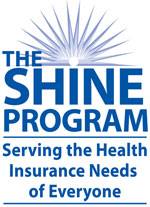Eldercare Q&A: Preparing Yourself For Medicare
Q: I am turning 65, how should I get ready for Medicare?
A: Between 2011 and 2030, 10,000 people a day will turn 65. That’s 73 million Americans who will be exploring Medicare health insurance for the first time. Medicare has several primary parts:
- Part A: is often called hospital insurance because it pays for your care while you are in the hospital. Part A also pays some of the costs if you stay in a skilled nursing facility or if you get health care at home. Part A also covers hospice care for people who are terminally ill.
- Part B: covers doctor visits, plus screenings, lab tests, outpatient hospital care and home healthcare which is not covered by Part A.
These two Parts A & B are known as “Original” Medicare, or “fee for service” Medicare. With Original Medicare, you can go to any doctor, hospital, skilled nursing facility or outpatient treatment clinic that accepts Medicare assignment.
- Part C: refers to private health care plans known as Medicare Advantage plans, which have contracts with Medicare. When you join one, you get your Medicare-covered healthcare services—all the same things as Medicare Part A and B. But Part C plans also may cover services that Original Medicare does not—like eye exams, a pair of eyeglasses, or a hearing exam.once a year. They may charge different amounts than you would pay through Original Medicare. Medicare Advantage plans may also cover prescription drugs. If they do, you cannot buy a separate Medicare prescription drug plan.
- Part D: provides prescription drug coverage to everyone with Medicare. To get Part D, you must join a plan run by an insurance company or other private company approved by Medicare. Each plan will vary in cost and the drugs covered, and plans can change from year to year. A plan that covers your prescriptions this year might change and not cover them next year. If you take drugs now, or if you do not. and your health changes or you need more medicines, this insurance will help pay for your drugs and protect you from very high drug costs.
When you approach 6 months before your 65th birthday, here are some ways to prepare:
- Research the ABCD’s of Medicare by going to the website: MyMedicareMatters.org.
- Find out if you are eligible: Most people are eligible to get Medicare when they reach the age of 65, or younger if they have certain disabilities that prevent them from working. To read the eligibility rules go to: : https://www.mymedicarematters.org/
- Learn when you can enroll: There are several times when you can enroll in Medicare, The Initial Enrollment Period is the first time you can sign up for Medicare. You can join Medicare Parts A, B, C and D during this time: The 3 months before your 65th birthday, the month of your birthday, and the 3 months after your birthday. If you were working for an employer and waited to sign up for Medicare, there is a Special Enrollment Period for Parts A & B any time you are working, or within 8 months following the month your employer health plan coverage ends, or when your employment ends (whichever is first). There is also a Special Enrollment Period for Part C & D, which is 63 days after the loss of employer healthcare coverage. If you miss your Initial or Special Enrollment Period, you can sign up for Medicare Parts A & B during the General Enrollment Period from January 1 and March 31 of each year. If you need to buy Part A, you must also enroll in Part B at this time. Finally, there is an Open Enrollment Period from October 15 to December 7th, when anyone with Parts A & B can switch to a Part C, or vice versa, and anyone can join, drop or switch a Part D plan, or change Part C plans.
To help sort all this out, call HESSCO to speak to a SHINE counselor (781) 784-4944. .
.

